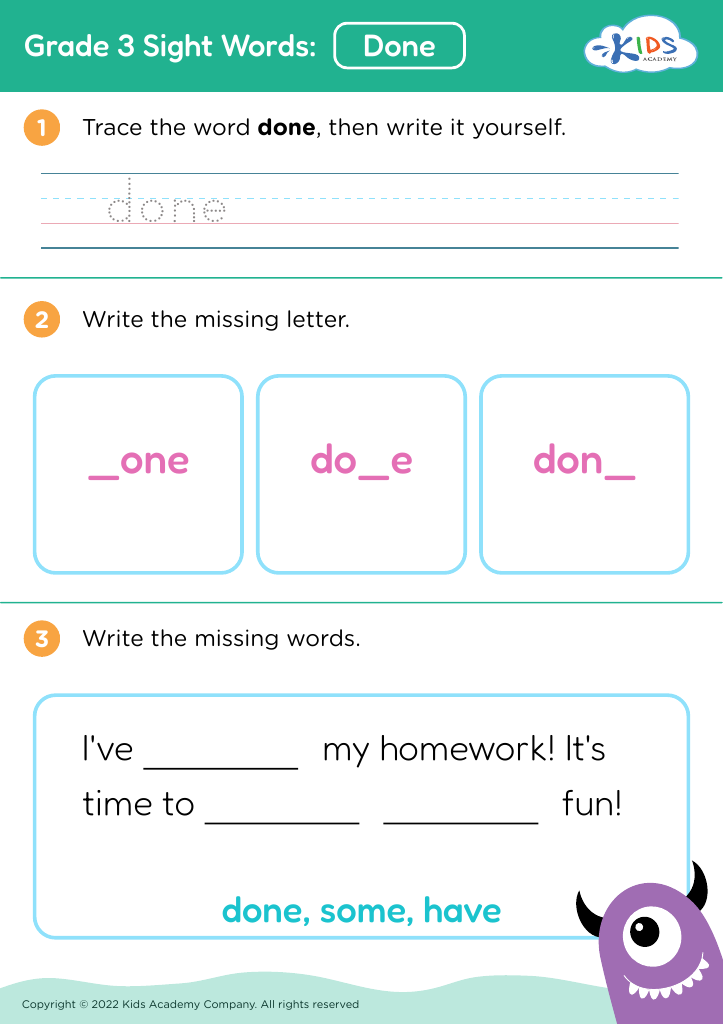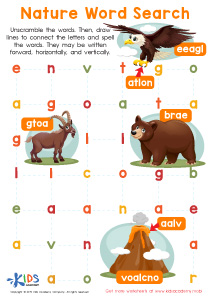Understanding multiplication Sight Words Worksheets for Ages 3-9
4 filtered results
-
From - To
Discover our "Understanding Multiplication Sight Words Worksheets," designed for children ages 3-9. These engaging worksheets seamlessly blend math and reading by introducing multiplication concepts through essential sight words. As kids explore multiplication, they will enhance their comprehension skills while gaining confidence in their reading abilities. Our worksheets feature captivating visuals and interactive exercises that make learning multiplication both fun and educational. Perfect for home or classroom use, these resources support educators and parents in helping young learners build a solid foundation in math language and skills. Start your child’s journey towards multiplication mastery while boosting their vocabulary today!
Understanding multiplication sight words is essential for young learners aged 3-9 because it lays a foundation for both mathematical fluency and overall literacy. Early exposure to these terms creates a strong vocabulary that enhances cognitive development and comprehension skills. When children recognize and understand multiplication-related terms, such as “times,” “equal,” and “product,” they become better equipped to grasp mathematical concepts as they progress.
Fostering familiarity with multiplication sight words early allows teachers and parents to create a seamless connection between reading and math, promoting integrated learning. This dual focus not only helps in understanding numerical relationships but also prepares students for future academic challenges. By identifying multiplication sight words, children develop an ability to explain their thinking, boosting both communication skills and confidence.
Additionally, engaging young learners with fun activities that incorporate these sight words can promote interest in math, overcoming anxiety often associated with it. As mastery of multiplication foundational skills increases, students find more enjoyment in learning, creating a positive lifelong attitude toward education. Therefore, caring about multiplication sight words is paramount for parents and teachers looking to foster a robust educational environment where children thrive both academically and personally.





















